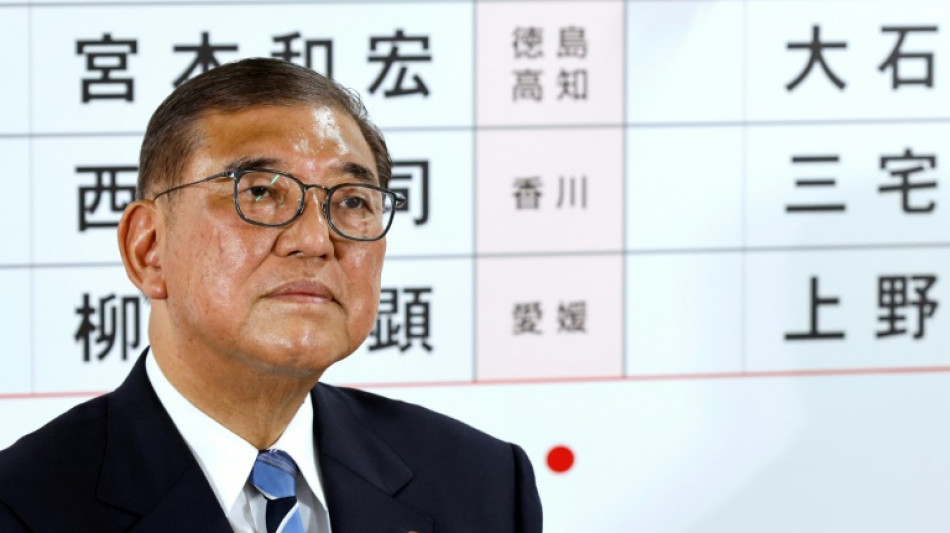

Shigeru Ishiba, Japan's rapidly diminishing PM
Shigeru Ishiba likes the nitty gritty of policy and making military models, but his dream job as Japanese prime minister looked at risk of coming unstuck on Sunday.
According to media projections after elections, Ishiba's coalition was projected to have lost its majority in the upper house, a result that might push him to resign.
Late on Sunday, he was tight-lipped about his future.
"It's a difficult situation, and we have to take it very humbly and seriously," Ishiba told broadcaster NHK.
"We can't do anything until we see the final results, but we want to be very aware of our responsibility," Ishiba added.
The Liberal Democratic Party (LDP) has governed Japan almost continuously since 1955, but whether anyone wants to replace Ishiba is another matter.
"I wonder who else wants the job," Masahisa Endo, politics professor at Waseda University, told AFP before the election result.
Ishiba, 68, a self-confessed defence "geek", is the son of a regional governor and is from Japan's small Christian minority.
Seen as a safe pair of hands, he won the party leadership in September, on his fifth try, to become the LDP's 10th separate prime minister since 2000, all of them men.
Ishiba pledged to "create a new Japan" and revitalise depressed rural regions, and to address the "quiet emergency" of Japan's shrinking population.
He immediately called lower house elections for October but that backfired spectactularly, with the LDP suffering its worst result in 15 years.
That robbed the LDP and its coalition party Komeito of their majority, forcing them to bargain with opposition parties to pass legislation.
Ishiba's policies on bringing down inflation and spurring growth have "flip-flopped", Stefan Angrick at Moody's Analytics said last week.
The government "boxed itself in, promising only some belated and half-hearted financial support that will do little to improve the demand outlook," Angrick said.
The government's popularity ratings have plummeted, with voters angry about price rises, especially for rice that is twice as expensive as a year ago.
- Clumsy ways -
Ishiba, the father of two daughters, also appointed only two women to his cabinet, down from five under predecessor Fumio Kishida.
Ishiba's sometimes clumsy ways -- ranging from the less-than-perfectly tidy arrangement of his tuxedo to his table manners -- have also been rich fodder for social media memes.
He drew ridicule after being snapped apparently napping in parliament and for failing to stand up to greet other world leaders at a gathering in South America.
Worse was a video that emerged of Ishiba eating an onigiri rice ball -- a popular snack -- whole and munching on it without closing his mouth.
"He eats like a three-year-old," wroter one user on social media platform X.
- No deal -
A major challenge has been dealing with US President Donald Trump, who has imposed painful tariffs on Japanese cars, steel and aluminium.
Further levies of 25 percent on other Japanese imports -- up from 10 percent currently -- will come into force on August 1 if there is no trade agreement.
Ishiba secured an early invitation to the White House in February and has sent his tariffs envoy to Washington seven times, but there has been no deal yet.
Then-premier Shinzo Abe -- dubbed a "Trump whisperer" -- fared better during Trump's first term, managing to shield Japan from any tariffs.
Abe, who was assassinated in 2022, gifted Trump a gold-coloured golf club and was a frequent guest of the US president.
According to Trump, Abe even nominated him for the Nobel prize. "There will never be another like him," he said after Abe's death.
Q.Panagiotou--AN-GR



